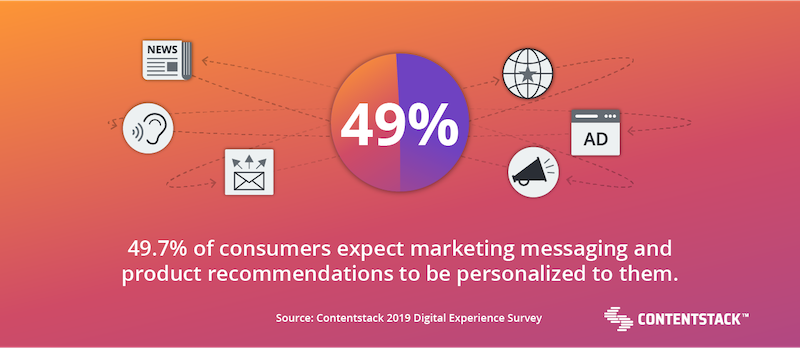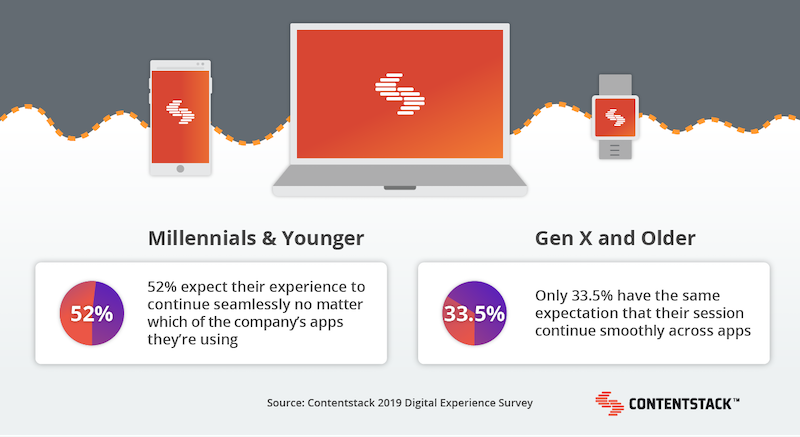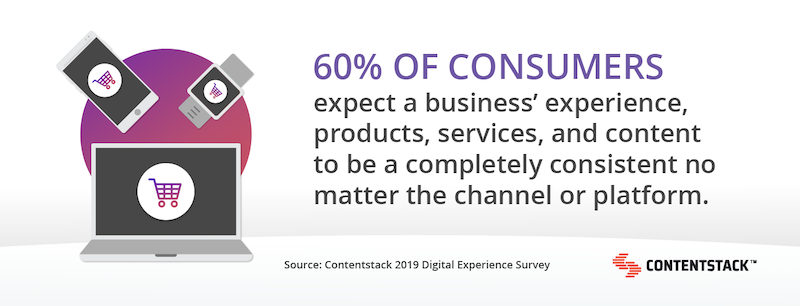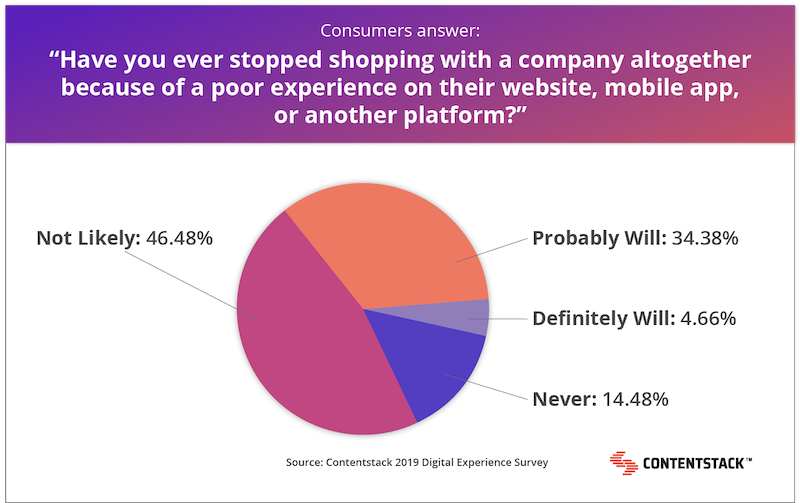What Consumers Expect When it Comes to Your Digital Experience (Survey)

Share

Digital experiences make up the entire range of interactions consumers have with businesses across digital channels, devices, and platforms. These experiences don’t just provide a whole new way to consume marketing, content, products, and services—they allow businesses to collect unique consumer data that can help further dial-in each person’s digital experience.
How well companies can use the tools and information at their disposal to deliver these digital experiences is a measure of how successful they’ll be as omnichannel consumption becomes the norm.
To help your business keep up and stay in the know, we asked over 500 U.S. consumers about what they expected from their digital experiences. The essence of what we found was this:
- Consumers want brands to use personal data
- Younger consumers are looking for consistent omnichannel experiences, but all consumers expect a consistent digital presence
- One bad brand experience can ruin your relationship with a consumer
The following is a detailed breakdown of our most important findings, as well as tips on how to use this data to provide digital experiences your consumers crave.
Consumers Want You to Act on Their Behavioral Data
According to our survey, most people — 87.3 percent, do not expect content on a brand’s channels (think website, mobile application, social media, and more) to be personalized to their specific location, device, search history, and so on.
However, 32.3 percent do expect content and products to be personalized based on their past interactions with the business. Similarly, 17.4 percent also expect a company’s marketing materials, such as ads and emails, to be customized to them.
This aligns with our past findings indicating that, generally, consumers are fine sharing personal data with brands—as long as they’re getting customization in return.
What this tells us is that consumers have a decent enough understanding of how personalization works to expect it when it’s reasonable. And, they’re willing to give you the info you need to get started with personalizing their digital experiences — as long as you make it worth their while.

Newer Generations Expect Consistent Digital Experiences Across Channels
Just over 38 percent (38.2%) of respondents overall said they expect to be able to start a session on one device and finish it on another when using an application. For example, a person expects that when opening up the Spotify app on their laptop, it plays the same song that they were jamming to on their phone during their run.
When broken down by age, over half of the respondents aged 18-34 expect to be able to start something on one device and continue seamlessly on another. However, fewer than 34 percent of people above the age of 35 have the same expectation.
For businesses, this means it’s essential for a business’ app to be able to save a user’s sessions across multiple devices if their ideal audience is Millennials and Gen Zers. As we’ll learn later, it could mean the difference between retaining or losing that user.

Everyone Expects a Consistent Digital Presence
The majority of content consumers (59.2 percent) expect a company to have consistent information on every channel (website, app, email, etc.). And, about half of respondents expect a company’s mobile app to have the same features as their desktop website.
When product or service content does need to change, 60 percent of respondents said they expected the company’s websites, emails, text messages, and other communications to all reflect these changes on the very same day.
As the majority opinion shows, it isn’t an option to roll out changes to a single channel, product, or piece of content at a time.
If you have more content and more changes than you can keep up with, we recommend upgrading your content management system (CMS) to a headless platform that enables you to create, optimize, distribute, store, and even reuse content across channels easily.
Do you think your company is missing out on valuable opportunities because of an outdated, rigid CMS? Read about the 5 Signs Your CMS is Causing Astronomical Opportunity Cost.

One Poor Digital Experience May Cut the Relationship Short
Over 60 percent of our survey respondents said they’re “never” or “not likely” to continue shopping with a company after a single poor experience on their website, mobile app, or other platforms.

Luckily, we’ve already uncovered the essential digital experiences that we know keep consumers coming back for more — using personal data to provide personalized products and messages, implementing seamless sessions across channels, and producing an all-around consistent digital presence.
But, how do you provide all of this without maxing out your technology or staff budget?
How to Give Consumers the Digital Experiences They Expect
To prepare for delivering digital experiences, answer the following questions.
Do you need to gather and act on personalized consumer data?
How are you providing a seamless digital experience and brand presence across channels and sessions?
Does your digital experience strategy take steps to avoid poor digital experiences that can damage your relationships with consumers?
A crucial first step to providing digital experiences is to set up a digital experience platform with a user-friendly headless CMS that includes all the content management and collaboration tools of a traditional CMS but employs a decoupled architecture. A decoupled, headless CMS enables you to take advantage of best-in-class integrations from CRM to AI to personalization engines and more.
Survey Methodology: This survey was conducted through Google Surveys. 501 responses were collected from men and women in the U.S. between the ages of 18 and 64. The margin of error is ~4.4 percent.



